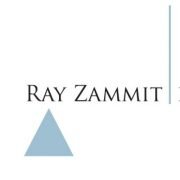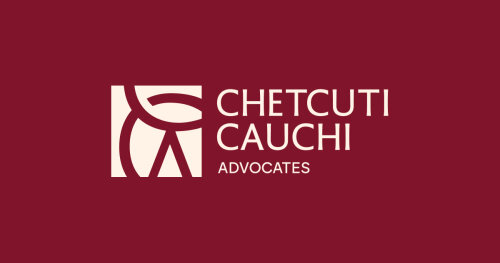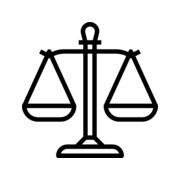Best Renewable & Alternative Energy Lawyers in Valletta
Share your needs with us, get contacted by law firms.
Free. Takes 2 min.
List of the best lawyers in Valletta, Malta
About Renewable & Alternative Energy Law in Valletta, Malta
Renewable and alternative energy law in Valletta, Malta, addresses the regulations, incentives, and requirements governing the generation, distribution, and consumption of energy from renewable sources such as solar, wind, hydro, and biomass. Malta has made significant strides in promoting cleaner energy to reduce dependency on imported fossil fuels and meet European Union (EU) targets for sustainable development. The legal framework in Valletta reflects a strong commitment to supporting renewable energy initiatives, promoting private and public investments, and ensuring that projects meet local, national, and EU standards for sustainability, safety, and efficiency.
Why You May Need a Lawyer
There are several circumstances in which individuals or companies may require legal help in the field of renewable and alternative energy in Valletta. Common situations include:
- Understanding and complying with complex regulations when setting up renewable energy projects
- Applying for permits or licenses related to solar panels, wind turbines, or other renewable facilities
- Negotiating power purchase agreements or contracts with suppliers and customers
- Accessing government grants, incentives, or fiscal benefits for clean energy investments
- Resolving land use, property rights, or zoning issues for energy installations
- Handling disputes with energy service providers or contractors
- Ensuring compliance with health and safety or environmental regulations
- Advising on the transfer, acquisition, or financing of renewable energy assets
Given the dynamic nature of this field and the evolving legal landscape, legal professionals play a crucial role in helping clients understand their rights, navigate bureaucracy, and avoid costly mistakes.
Local Laws Overview
In Valletta, renewable and alternative energy is regulated by a mixture of Maltese legislation and EU directives. Key aspects include:
- Renewable Energy Sources Regulations: These establish targets for the use of energy from renewable sources and outline the responsibilities of producers and consumers.
- Energy Performance of Buildings Regulations: These require new and renovated buildings to meet specific energy efficiency criteria, including the integration of renewable energy systems where feasible.
- Feed-in Tariffs and Incentives: The government offers financial incentives to promote the adoption of renewable technologies, such as grants, tax reductions, and guaranteed payment schemes for energy fed into the national grid.
- Permitting and Licensing: Specific permits and authorisations are required before installing or operating renewable energy systems, especially for large or commercial projects.
- Environmental Impact Assessments: Larger projects may be subject to assessments to evaluate potential environmental impacts and ensure sustainable development.
- Land Use and Planning: Energy projects must comply with local plans, zoning laws, and building codes, overseen by the Planning Authority and other regulatory bodies.
Staying compliant with these rules can be challenging and often requires multidisciplinary expertise in energy, environmental, and commercial law.
Frequently Asked Questions
What types of renewable energy are most commonly used in Valletta?
The most commonly used renewable energy sources in Valletta are solar photovoltaic panels and solar water heaters. Due to Malta’s climate, solar energy is the most practical and prevalent. Efforts are also made to explore wind and other technologies on a smaller scale.
Do I need a permit to install solar panels on my property in Valletta?
Yes, in most cases you will need a permit or notification to the Planning Authority, especially for installations visible from the street or on heritage buildings. Commercial installations require further authorisation from energy regulators.
Are there government incentives for installing renewable energy systems?
Yes, the Maltese government provides grants, feed-in tariffs, and tax incentives to encourage renewable energy adoption. These incentives vary based on system size, type, and compliance with regulations.
Can I sell excess energy from my solar panels to the grid?
Yes, individuals and businesses can sign up for feed-in tariff schemes, allowing them to sell excess electricity generated by solar panels back to the national grid at predetermined rates.
What legal steps are required for a commercial renewable energy project?
The legal steps include conducting a feasibility study, applying for planning and environmental permits, securing a connection to the grid, and entering into purchase or supply agreements. Legal advice is recommended to navigate the process smoothly.
How does renewable energy law relate to environmental protection?
Renewable energy law requires compliance with environmental standards to limit negative impacts. Projects, especially large-scale ones, must often pass environmental impact assessments and adhere to EU environmental regulations.
Can I face penalties if I do not comply with local energy regulations?
Yes, non-compliance with renewable energy laws, such as installing systems without permits or breaching grid connection rules, can result in fines, removal orders, or criminal prosecution.
Who regulates renewable energy in Valletta?
The main regulators are the Regulator for Energy and Water Services (REWS) and the Planning Authority, with enforcement by other governmental bodies as required.
What is the process for obtaining planning permission for renewable projects?
You must submit an application to the Planning Authority, including technical drawings and environmental information. The process may involve consultation with other authorities and a public notification period.
Is it possible to transfer or sell renewable energy assets?
Yes, renewable energy systems and associated rights can usually be transferred or sold, but contracts and transfer processes must comply with property and energy sector rules. Legal advice ensures all requirements are met.
Additional Resources
If you are seeking more information or support, the following resources and authorities are highly relevant:
- Regulator for Energy and Water Services (REWS): Oversees licensing, monitoring, and regulatory compliance
- Malta Resources Authority: Provides general energy policy guidance and regulatory oversight
- Planning Authority: Handles permits, land use, and building compliance for energy projects
- Ministry for the Environment, Energy and Enterprise: Develops national energy strategies and incentive schemes
- National Energy and Climate Plan for Malta: Offers strategic information on Malta’s transition to renewable energy
- University of Malta Institute for Sustainable Energy: Research and educational outreach on renewables
These organizations provide valuable information, documentation, and contact points for individuals and businesses interested in renewable energy in Valletta.
Next Steps
If you need legal assistance relating to renewable and alternative energy in Valletta, Malta, consider taking the following steps:
- Gather all relevant project information, such as location, scale, and intended technology
- Identify any permits or licenses you may require for your project
- Research any available government incentives or funding opportunities
- Consult with a qualified lawyer or legal firm experienced in Maltese energy and environmental law
- Schedule a consultation to discuss your project or legal concern in detail
- Ensure all documentation and applications are prepared according to regulatory requirements
Working with a legal professional ensures your renewable energy plans are feasible, compliant, and positioned to benefit from local support mechanisms. Early legal advice can help you avoid delays, reduce risks, and maximise the success of your renewable energy initiatives in Valletta.
Lawzana helps you find the best lawyers and law firms in Valletta through a curated and pre-screened list of qualified legal professionals. Our platform offers rankings and detailed profiles of attorneys and law firms, allowing you to compare based on practice areas, including Renewable & Alternative Energy, experience, and client feedback.
Each profile includes a description of the firm's areas of practice, client reviews, team members and partners, year of establishment, spoken languages, office locations, contact information, social media presence, and any published articles or resources. Most firms on our platform speak English and are experienced in both local and international legal matters.
Get a quote from top-rated law firms in Valletta, Malta — quickly, securely, and without unnecessary hassle.
Disclaimer:
The information provided on this page is for general informational purposes only and does not constitute legal advice. While we strive to ensure the accuracy and relevance of the content, legal information may change over time, and interpretations of the law can vary. You should always consult with a qualified legal professional for advice specific to your situation.
We disclaim all liability for actions taken or not taken based on the content of this page. If you believe any information is incorrect or outdated, please contact us, and we will review and update it where appropriate.
















